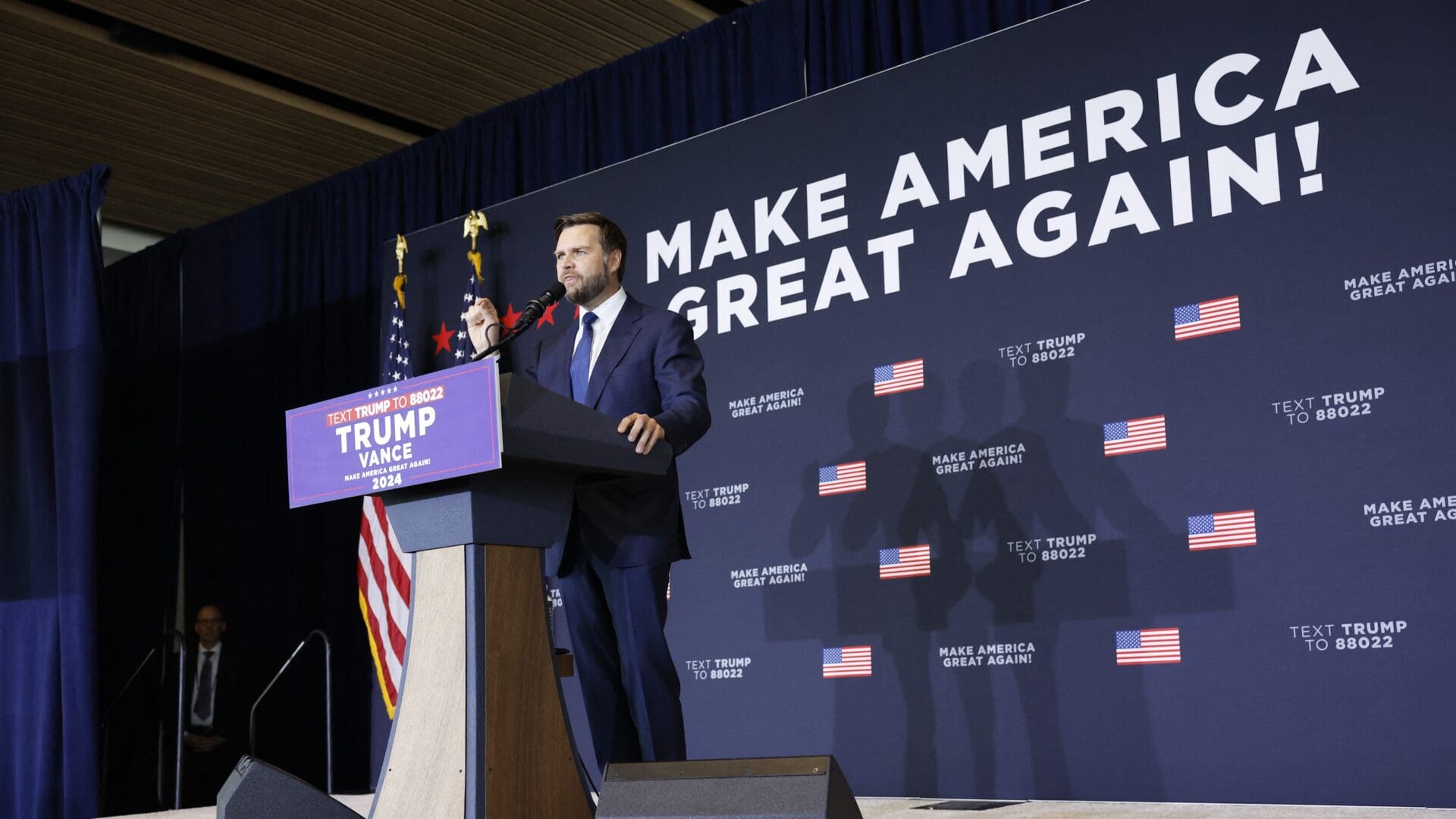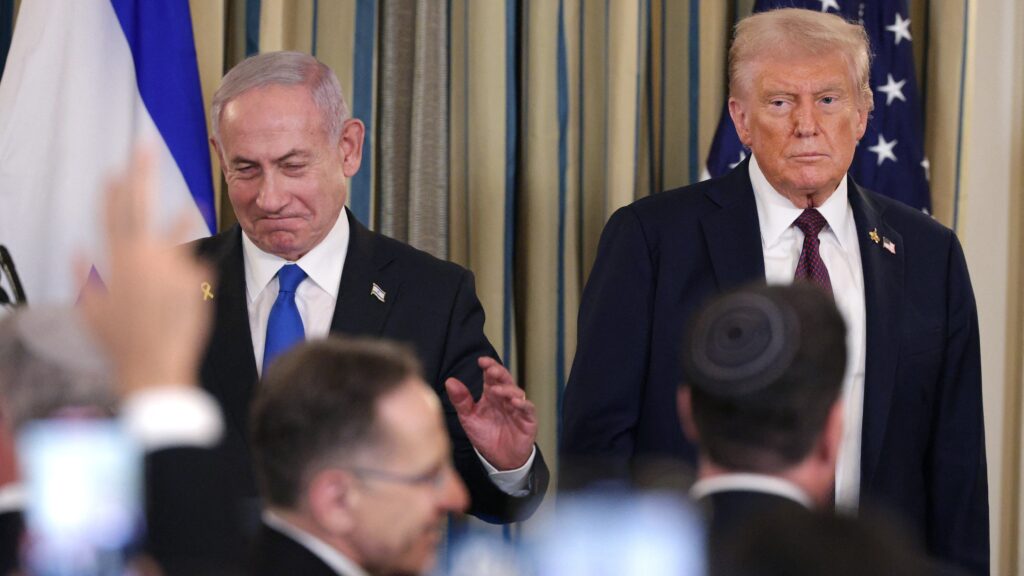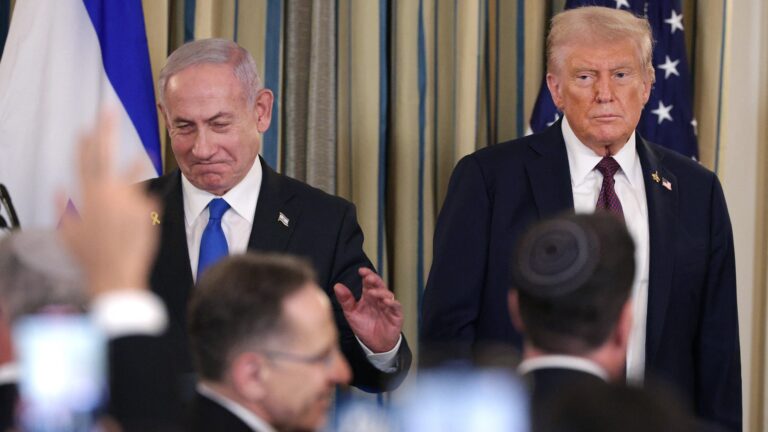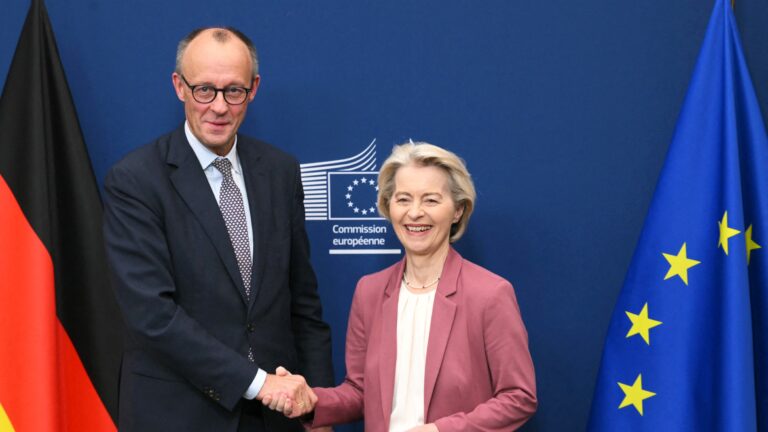The story goes that after his famous 1989 speech at Imre Nagy’s reburial, young Viktor Orbán faced a Budapest liberal on the stage at Heroes Square, who adjusted the scruffy student leader’s tie. The country boy from Felcsút never forgot the insult, and the event is sometimes cited as a source of Orbán’s populist instincts.
It’s a great story, but I’m not sure if it’s true. The London Review of Books cited it not long ago, but checking video footage of Orbán’s address reveals that he wasn’t wearing a tie. Nevertheless, whatever one may think of Viktor Orbán, it is undeniable
his rural outsider background has profoundly shaped his political career and outlook—especially his distrust of elites.
This all came to mind when I heard GOP vice presidential nominee J.D. Vance’s convention speech. Vance, 39, grew up fairly poor in small-town America—Middletown, Ohio, in fact—the descendant of so-called ‘hillbillies,’ as the rough people from the Appalachian mountains are called. He barely knew his father, and his mother came in and out of his life as she battled drug addiction. Bonnie Vance, the boy’s chain-smoking, pistol-packing grandmother, raised him.
Vance entered the US Marine Corps, which taught him discipline, and then later, made it into Yale Law School, one of the top training grounds for American legal elites. The Viktor Orbán neckwear story may or may not be true, but Vance, in his 2016 memoir Hillbilly Elegy, tells about the ‘culture shock’ of Yale life. Unlike most of his privileged classmates, Vance did not know the difference among wines, and when he first tasted sparkling water, thought something was wrong with it.
With a Yale Law degree under his arm, Vance was set to chart a path through the manicured garden of the US elite. As late as 2016, in interviews to promote his autobiography, Vance denounced Donald Trump as a fraud. Yet, like Viktor Orbán, who also benefited from a liberal education, Vance eventually soured on what the globalist ruling class taught and believed. And in Vance’s case, he came to see that however messy Trump’s articulation of his beliefs might have been, the Manhattan billionaire was … right. And not only right, but the only real weapon ordinary Americans had to use against the globalist Ruling Class, who owned both the Democratic and Republican parties.
After witnessing what the Left and the Never Trump Right did to sabotage Trump’s presidency, and witnessing the accelerating insanity of wokeness during the Trump years, Vance went MAGA. Some people call his conversion cynical. It’s not. I have known J.D. Vance personally since a 2016 interview I did with him went mega-viral, and launched his astonishing career. We bonded in part because we grew up under similar circumstances. Though my rural working-class family was far more stable than Vance’s, we both knew from experience what it is like to be on the outside, and to gain access to the inside.
Though Vance’s conversion to MAGA was far deeper than my own, nevertheless I too came to accept Trump as
the only chance people like us had to defeat what Hungarians will understand as the Soros clique.
Any doubts I had evaporated when a Donald Trump, temporarily felled by an assassin’s bullet, arose from the stage in Pennsylvania and, with blood streaming down his face, stood tall, extended his fist into the air, and shouted, ‘Fight! Fight! Fight!’
The thing about Trump is that he is a man of instincts, not ideology. This is not necessarily a weakness. Only a man with the unstoppable confidence of Trump in his own take on the world could have demolished the Republican establishment. By choosing Vance as his running mate, Trump has picked a successor who is not only a true believer, but who can also give Trumpism intellectual substance, and who indeed embodies it.
Hungarians like to compare Viktor Orbán to Donald Trump, but that’s only partly true. Orbán shares Trump’s bulldog faith in himself, but unlike Trump, Orbán has a well-considered political vision. In this sense, Orbán is more like J.D. Vance.
Like Orbán, who went to Oxford on a Soros scholarship, Vance is a traitor to his Yale class, asserting his loyalty to the people who raised him. In his convention speech, Vance said, ‘America’s ruling class wrote the checks; communities like mine paid the price.’
‘We’re done, ladies and gentlemen, catering to Wall Street,’ he said, of the Trumpified GOP. ‘We’ll commit to the working man.’
Vance also challenged the globalist idea that nations are a thing of the past. After telling a powerful story about how seven generations of his family are buried on the side of a Kentucky mountain, Vance said, ‘That is a homeland. That is our homeland. People will not fight for abstractions, but they will fight for their home.’
This should resonate with Hungarians who support Prime Minister Orbán’s fight to protect Hungarian sovereignty and culture from the internationalists of Brussels and Davos. As a younger man, Vance went to Iraq as a US Marine to fight in a war he believes should never have been fought, and which President George W. Bush said was intended to bring liberal democracy to Iraq—a country with no history of it, and no cultural capability to sustain it. If Trump-Vance ascend to power, that will be the end of ruling-class universalist fantasies that get young men from small town and rural America, killed for Washington hegemony masquerading as a crusade for democracy.
The last time I saw J.D. Vance, we drank beer at a pub not far from the Hotel Bayerischer Hof, where the annual Munich Security Conference was underway. The war veteran Vance was downcast because he had been trying to explain to the transatlantic mandarins that the Ukraine war was folly, and peace was the only sane option left. Nobody wanted to listen.
Viktor Orbán knows the feeling. But history is on the move.
Should J.D. Vance and Donald Trump make it to the White House, the Hungarian leader will have two strong allies
who not only like him, but believe in his nationalist-conservative vision, and can mold the future according to its realistic principles.
J.D. Vance now knows the difference between chardonnay and sauvignon blanc, but more importantly, he also knows the difference between Middletown and Davos. His training and experience in the halls and dining rooms of the American ruling class have taught him the skills he needs to defeat them. As he concluded his convention speech, Vance said, ‘I will be a vice president who never forgets where he came from.’ Middletown cheers. Felcsút should too.







